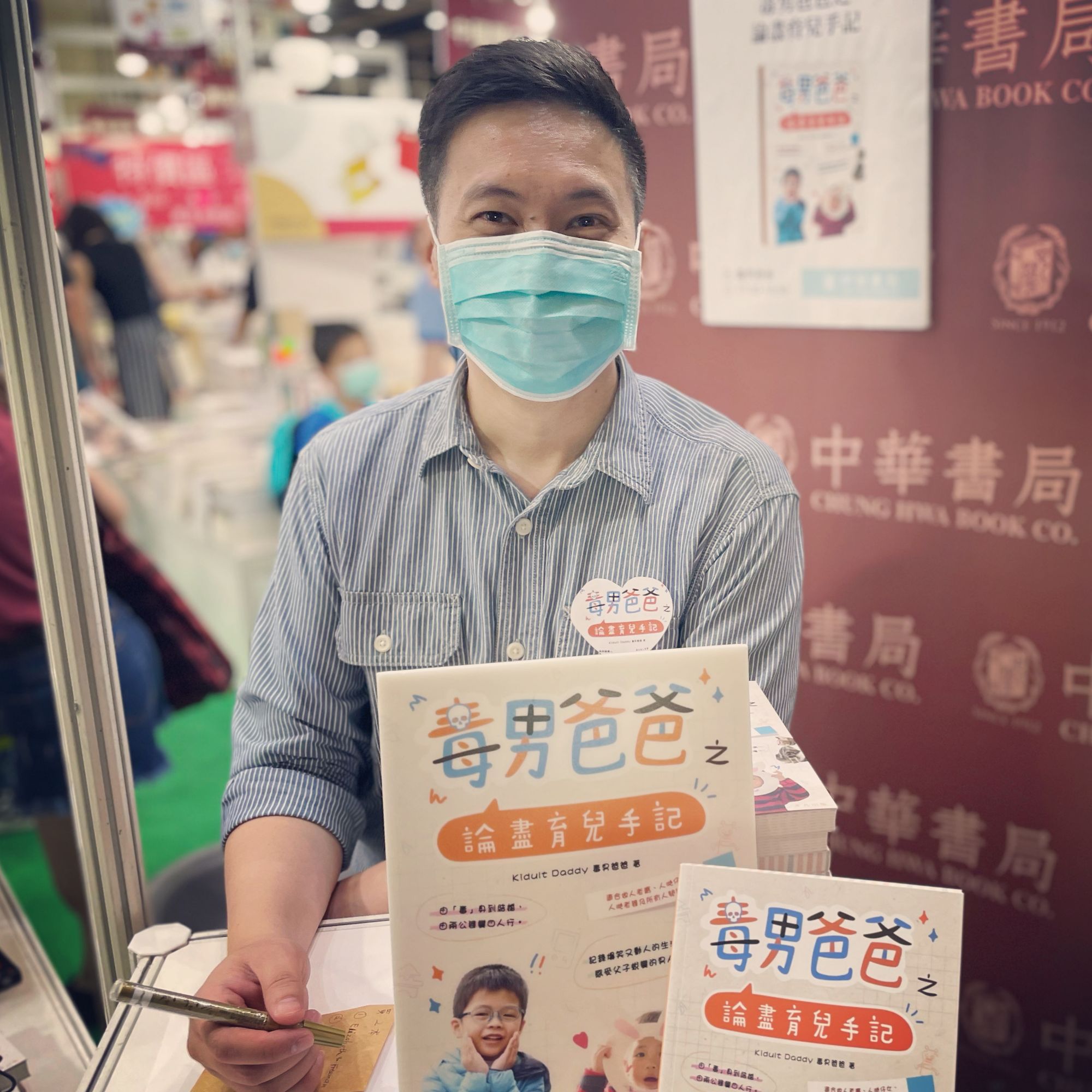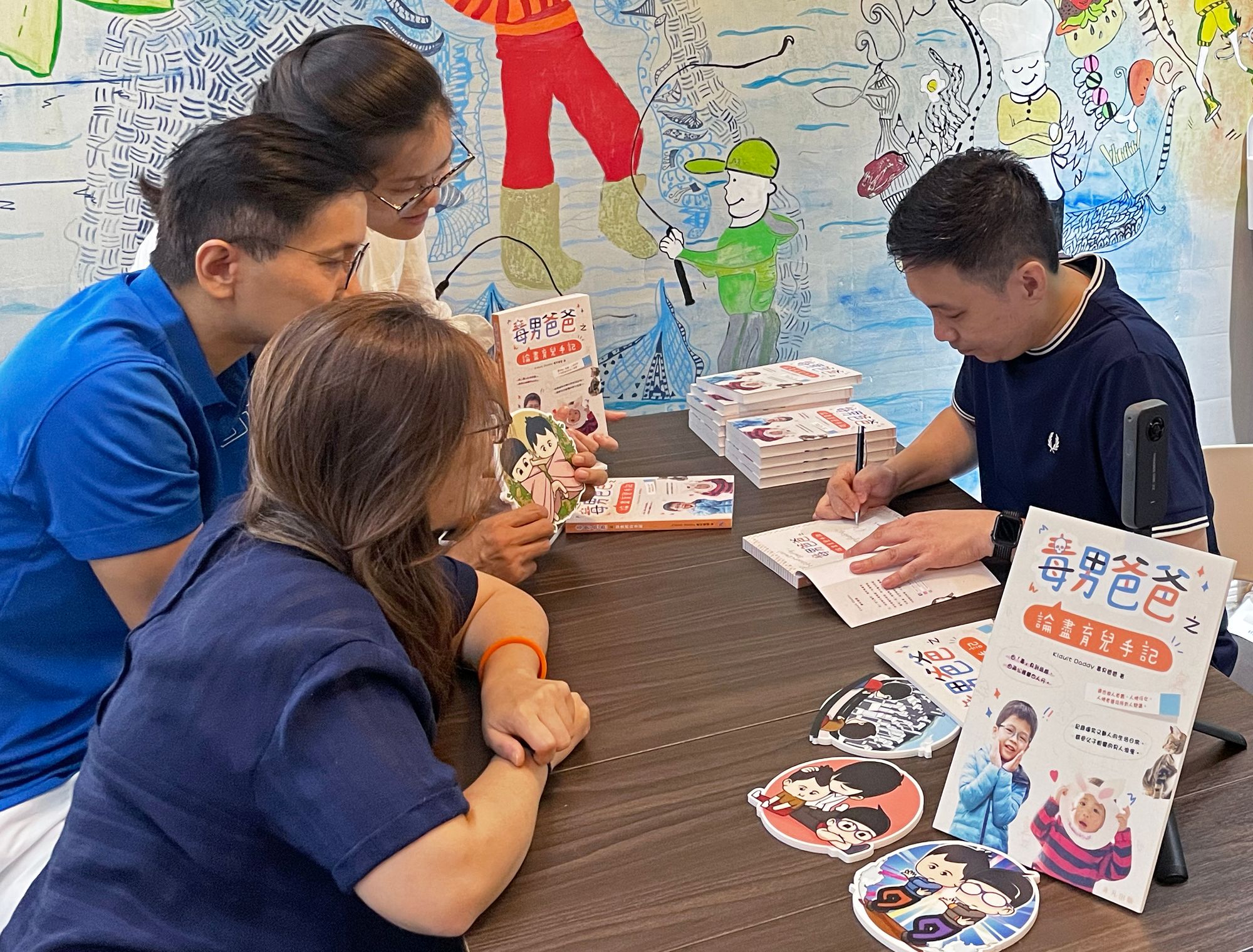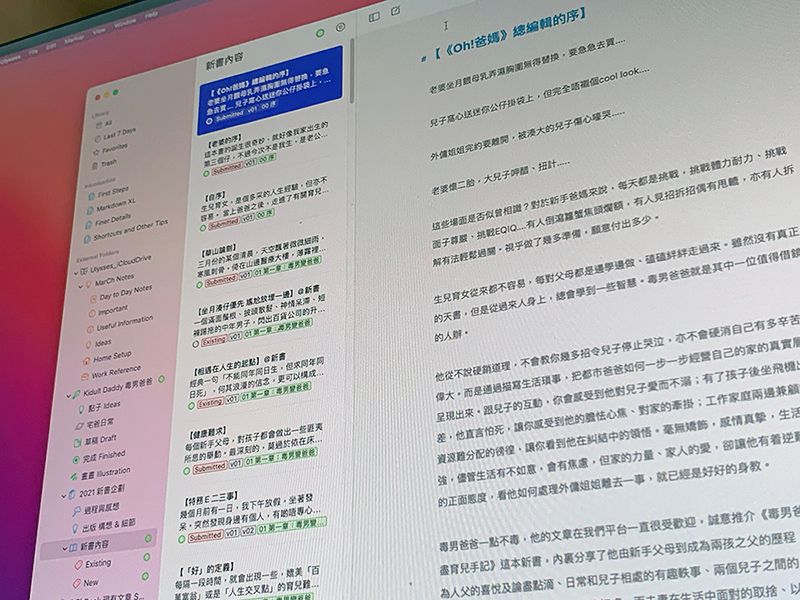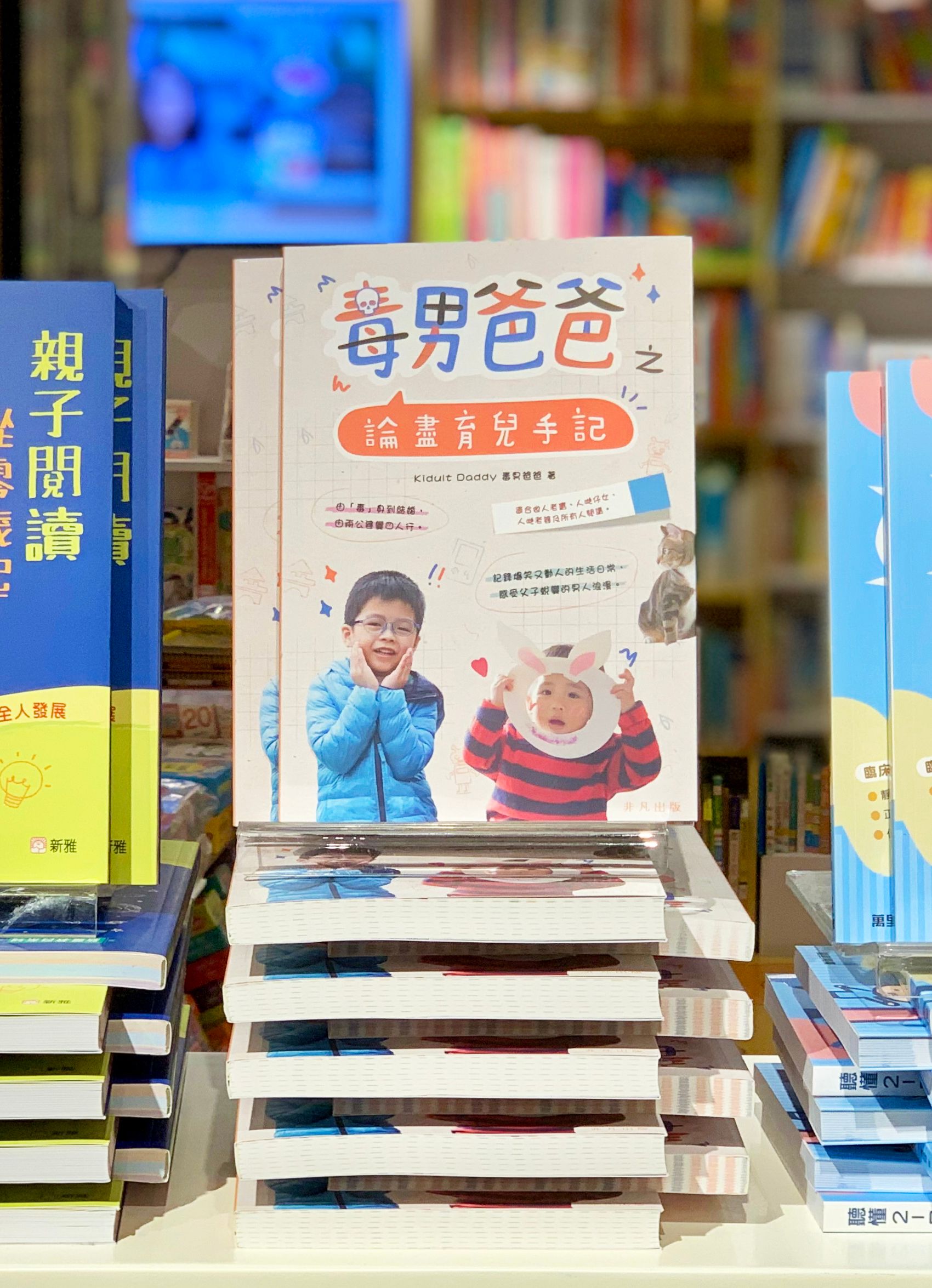Marty is from Hong Kong and is a father of two. As he transitioned to fatherhood, Marty began to write his parenting blog post. Last year, he published his first book. For him, the publication of this book was not only to share his parenting experience with others but to keep this exclusive memory.
Please tell us something about yourself and your professional background.
I have worked in the banking industry for years and have developed my career by broadening my horizons via contributing to multiple roles in the company. Different roles come with different responsibilities and challenges, and I love trying new things as a typical Enneagram Type Seven (The Enthusiast). New sparks always keep me motivated. A few years ago, upon the birth of my first child, I gained a new role as a Father. Now, I’m a father of two.
You have published a parenting book Kidult Daddy's Clumsy but Memorable Parenting Diary(毒男爸爸之論盡育兒手記) recently. Could you please tell us about it? What inspired you to write and publish your book?

I wasn’t planning to publish a book in the very beginning. I started a blog when my oldest kid was 2, writing short stories and sharing parenting anecdotes, experiences and views. Parenting is rewarding but sometimes frustrating. And for me, I realised that writing is actually therapy - I can destress by writing my feelings down and then moving on. It also helps me to memorise special moments with kids. At that moment, there were not many Cantonese parenting articles written from a father’s perspective. I am thankful that a couple of Hong Kong’s famous parenting websites invited me to share my articles as a registered blogger, so my work can reach more readers.
It also helps me to memorise special moments with kids.
When faced with two funny and naughty boys at home, writing ideas will never run out. By 2021, I had accumulated a number of new topics and a reader base, and I had an opportunity to publish a book and extend my articles to a new reading platform.
(*In Cantonese "Kidult" roughly translates as "a mature geek who stays young at heart)
What has helped or hindered you most when writing a book?
Writing a book is different from running a blog compared with a blog, in which articles are shared one by one on an ad hoc basis; a book needs a structure to give readers a good sense of consistency and continuity. So in the first discussion with editors, I am sure that my first challenge is to find a way to organise my thoughts. Also, we have targets on how many articles will be included in the book and the number of words for each.

What is your typical day like? And how do you stay focused while writing?
I usually run “two shifts” a day, my full-time work daily routine and evening time with kids. So my me-time starts when the kids are asleep, which is the best time to write. And to stay focused, I will only launch the writing application with music on in the background.
What qualities and experiences do you think most have shaped who you are today?
After joining the world of parenthood, I understood that more time must be invested in the family to stay close with the kids. Then I realised that it is not easy because our days are already packed with a lot of daily routines.
Since my high school days, I have loved writing and occasionally creating stories during my leisure time. So I picked this up and started jotting down interactions with family and kids and turned these experiences into parenting articles. The initial intention was to write something down like a diary, but then it became a habit, and I continued writing.
How did you come across Ulysses? Please give us some more insight into how you used Ulysses in your work. What do you like best about Ulysses? Do you have a favorite feature?
When I started the parenting blog, I tried to find an application that could quickly jot down ideas, set targets to keep me motivated, and sync across devices I am writing on.
At that time, I found a lot of applications designed for note-taking with a lot of handwriting aids, but then I met Ulysses, which is actually a well-crafted application with the design and workflow considered from a writer’s perspective.

I love using Ulysses because of the overall writer-friendly environment which allows me to focus only on my created content - a clean and simple interface, intuitive and flexible content organisation, target setting and tracking, and integrations with publishing websites. In addition, support for Traditional Chinese gives me a familiar environment when I am navigating the application and writing my book in the same native language.
During the preparation of my published book, I found that organising with a combination of folders, tags and filters is extremely useful to create a clear skeleton and progress of the book. Together with the deadline setting feature, every time when I pickup the writing progress after a busy day, I can quickly know where I am in the creation journey and what I should focus on.
What other tools and productivity apps do you use, and how do they help you?
Alongside Ulysses, which is writing-centric, I used other tools to give a slight touch to visuals. For example, I use Affinity Designer to create illustrations for the published book. Also, I use Adobe Creative Cloud Express for featured images of my website. However, I tend to keep visuals minimal because I hope readers can focus on the messages I put into the articles.
If you’re planning a sequel, could you share a tiny bit about your plans for it?
My writing journey continues. If there is a sequel to my parenting book, I am sure the focus will be more on the day-to-day stories of my kids’ childhood stages. Moving from Toddler/Preschool to Child stage, my relationship with them has already developed from ‘taking care’ to ‘getting along.’ I want to keep sharing experiences via stories with readers because parenting is never rocket science, and parents learn from each other. I believe that reading a parenting book will not give you concrete solutions but rather new perspectives.

Would you like to find out more about Marty’s story? Then visit his blog (in traditional Chinese) or follow him on Facebook.
